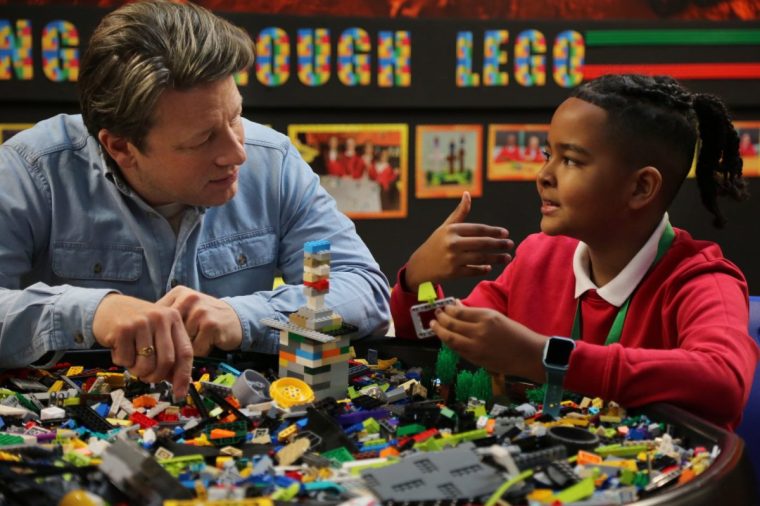The chef wants to help children with dyslexia enjoy school, but Education Secretary Bridget Phillipson only offers platitudes
Jamie Oliver is out of the kitchen and back on his soapbox. This time, it’s not school dinners he’s taking aim at but the entire education system – particularly, the way it helps (or rather, doesn’t help) children with dyslexia. “Byslexia affects reabing, sqelling and writing skills,” reads a message projected onto a classroom wall, immediately indicating just how tough and frustrating the learning difficulty can be. In his documentary Jamie’s Dyslexia Revolution, he sets out to make real change to how children with dyslexia are treated in school.
This is a personal plight for Oliver. We watch him struggle with reading his lines for his cooking programme voiceovers and find out that he didn’t read his first book until he was 33. In one of his many speeches to the camera, the TV chef remembers how being taken out of class to be given special lessons made him feel like he was “stupid”, like he was “wearing a dunce hat”. He delivers these distressing memories with a forced breeziness that doesn’t quite manage to hide his residual pain.
We’re not told the specific catalyst that set Oliver off on his journey to reform how schools aid children with dyslexia now – but the combination of his personal experience, and the staggering stats reeled off at the top of the documentary, are reason enough to take action. Ten to 15 per cent of every classroom in the UK is made up of children with dyslexia. These children are three-and-a-half times more likely to be expelled from school than their neurotypical peers.

Oliver visits a boxing gym, where dyslexic children struggling in school find an outlet where they don’t have to contend with reading and writing. Fifteen-year-old Amira reflects Oliver’s own school experience back at him, telling him that he feels isolated from everyone else in class. “When they do their best, you can see it,” he says, “but when I try to do my best it feels like I’m not doing anything at all.” Most upsetting is his outlook on the future: “I don’t see any hope.”
Before long, Oliver is able to draw a direct line from the lack of support for dyslexic students to criminality. He is told that those children who are expelled are more likely to turn to a life of crime – a theory that is somewhat proven by the fact that 50 per cent of inmates in British prisons are dyslexic. “Most of the people in there couldn’t write a letter,” says an ex-con now working in a bakery specialising in giving jobs to those who have recently left prison.
With Oliver’s point – that dyslexia is a problem worth tackling – proven, he sets about getting the attention of the Government. It’s here that Jamie’s Dyslexia Revolution becomes less urgent, as he cosies up to MPs in an effort to get his campaign under the nose of Education Secretary Bridget Phillipson. He wants her to increase spending and support for teachers, who are only taught how to teach children with learning differences for half a day in a three-year course. He also wants Phillipson to make screening for dyslexia mandatory for every primary school child, so no one else slips through the net of diagnosis.
But their eventual meeting is typically genial; he is afraid to go too tough in his line of questioning, while Phillipson is typically evasive and doesn’t make any concrete promises. “We’re a new Government,” she begins, before professing that “money isn’t enough” to reform the system. She does, however, concede that “the system isn’t working at the moment”.
With no concrete change made yet, perhaps Jamie’s Dyslexia Revolution is a little premature. But in sounding the alarm over the struggles that thousands of children are facing in school, Oliver has at least made a move in the right direction. My generation will remember Jamie Oliver as the man who took away their Turkey Twizzlers. Hopefully, a younger generation will remember him as the man who gave them back their education.
‘Jamie’s Dyslexia Revolution’ is streaming on Channel 4
